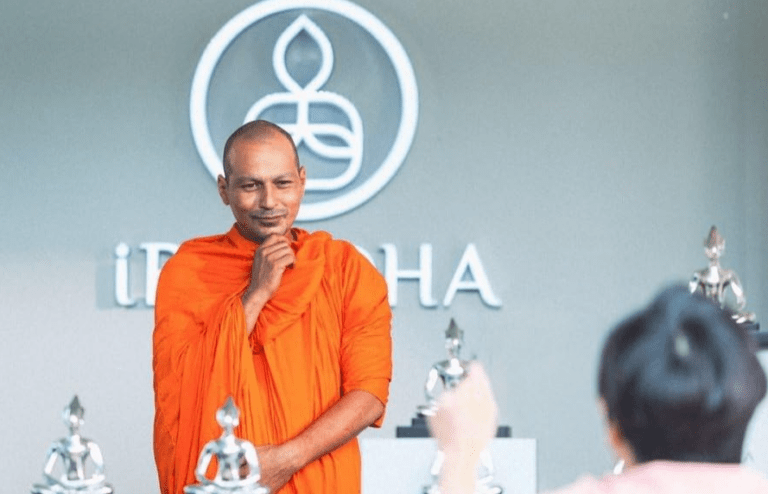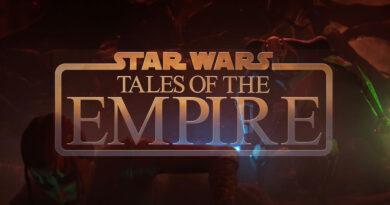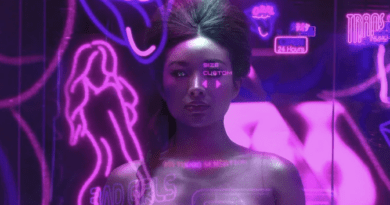
Tomorrow + I’ Episode 3 ‘Buddha Data’ Review
The third episode of ‘Tomorrow + I’, Netflix’s new sci-fi anthology, takes a look at a central part of Thai culture: Buddhism.
The episode is set some time in the 2030s, a new technology called Ultra has taken the country by storm. This interactive technology allows users to collect points whenever they do a good deed, such as giving food to the homeless. These points can then be used to do things like pay bills or buy goods, and it’s become an obsession for many people, who do everything they can to collect points.
This has become a problem for the Buddhist temples, as people are choosing to use this tech rather than give anything to the monks. To combat this one of the monks, Vrun, who is a former coder, creates his own program, called iBuddha. This also gives points to the user for doing good deeds, or offering prayers, and is seen as a way for Buddhism to move forward with the times.
On the face of it, this is actually a pretty realistic idea, and something similar could easily become popular if it was ever created for real. Most services now offer some sort of reward to keep you incentivized, usually as points schemes or free credit. While this could be seen as a positive thing, it’s clear that the people using Ultra aren’t doing it for the right reasons. They don’t want to do a good deed, they want a reward. One kid even refuses to give food to Vrun, as they can get more points by donating as a group to a homeless shelter. There are even people essentially kidnapping elderly folk so they can pretend to help them across the road for points.
The reason why Ultra was created adds another perspective. Its inventor, Neo, had parents who were devout Buddhists, and gave away all of their possessions to the temple, eventually killing themselves in the hopes of getting to heaven. As a result, Neo has a hatred of the monks, and the way they hide their corruption behind piety, while allowing such things to happen.
There’s definitely an interesting concept here. In the age of social media, so many people only seem to do good deeds so they can document them and put them up online, getting views and likes, and a sense of gratification and validation, rather than doing things quietly without anyone knowing.
Vrun’s decision to create a rival technology is like fighting fire with fire. It certainly gets more people involved in Buddhism, but in a consumerist way, rather than a spiritual one. Just like Ultra’s users, they are only working towards the next reward, rather than a selfless desire to do good.
As far as the story goes, it’s all pretty simple and at times convenient. The main character only became a monk to fulfil his dying mothers last wish, and ends up leaving the order at the end of the film. The way that iBuddha is brought down when the abbot’s past is revealed to all the users feels like a quick contrivance just there to end the story. I know shows like this are more there to ask questions rather than provide answers, but there could have been a deeper look into our relationship with technology, and whether ancient institutions should remain as refuge from modernity, or whether they should embrace it to remain relevant.
The general look and feel of the film is pretty standard. The fact it’s set in the very near future means there’s not much difference from the contemporary world. One of the best things about it is iBuddy, the little dustbin robot used by Vrun, which has that anthropomorphic quality, similar to droids in ‘Star Wars’.
It’s a shame really that this story falls so flat, as there’s an interesting concept here. Usually, sci-fi simply looks into the future, but the use of Buddhism provides an anchor into the past, to the ancient. But sadly, nothing is explored enough to make it truly interesting or thought provoking, besides the current obsession with instant rewards, which is a real shame and missed opportunity.



